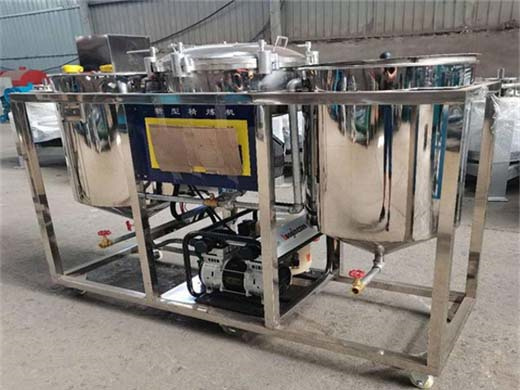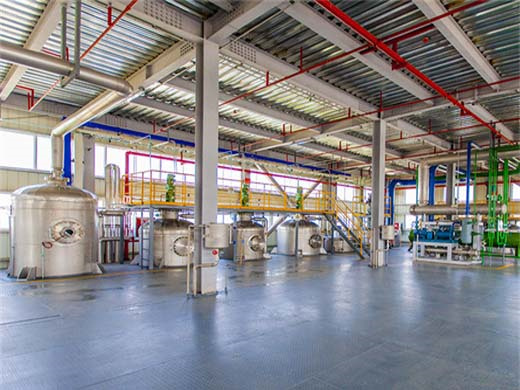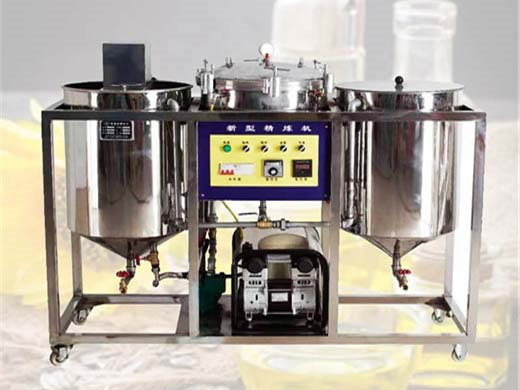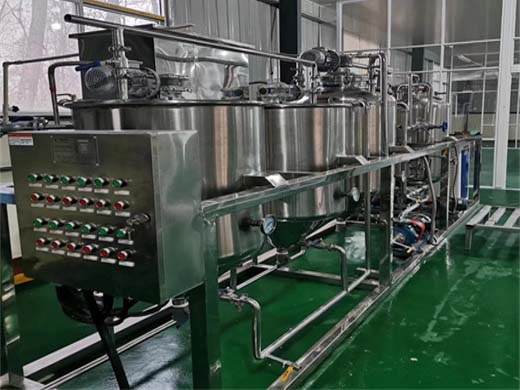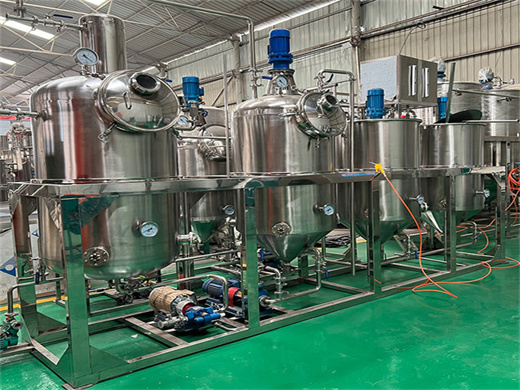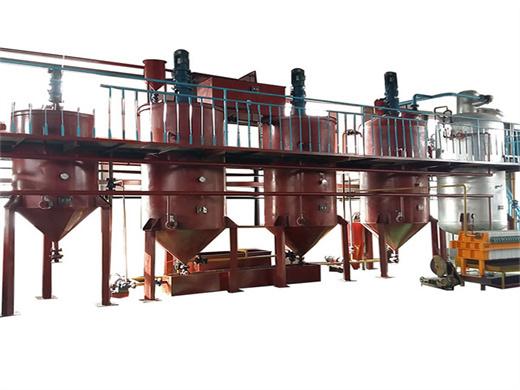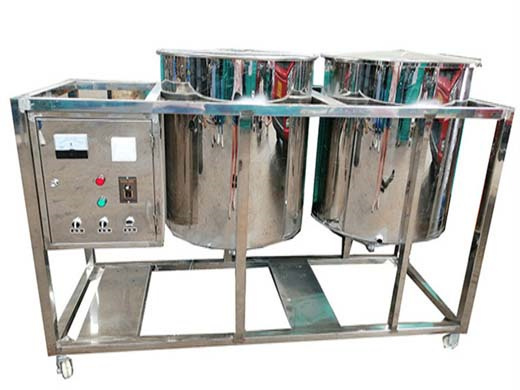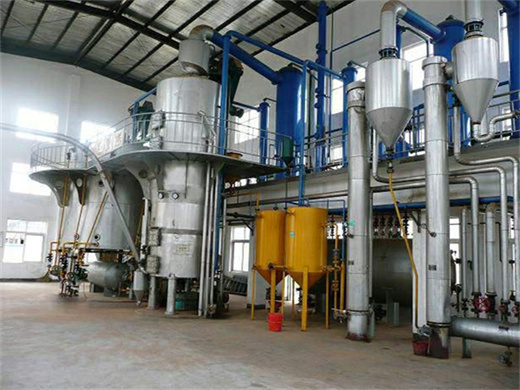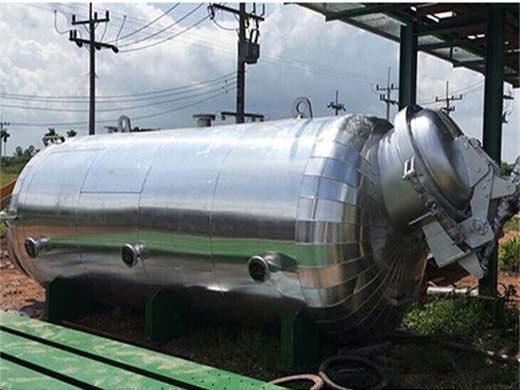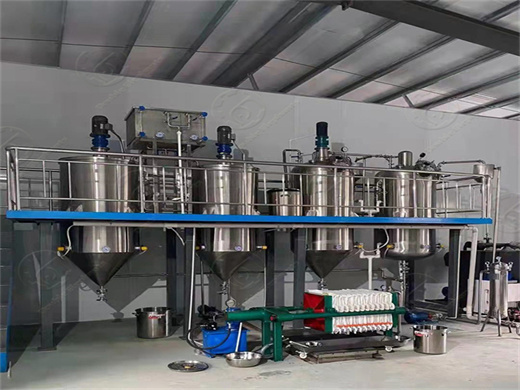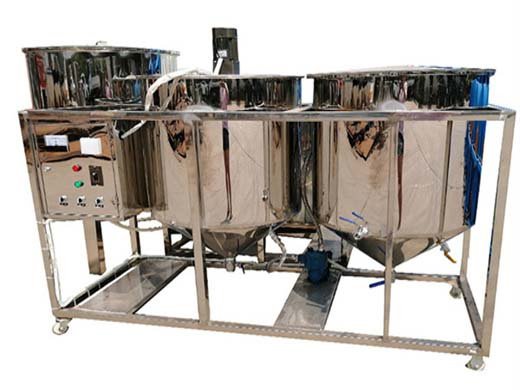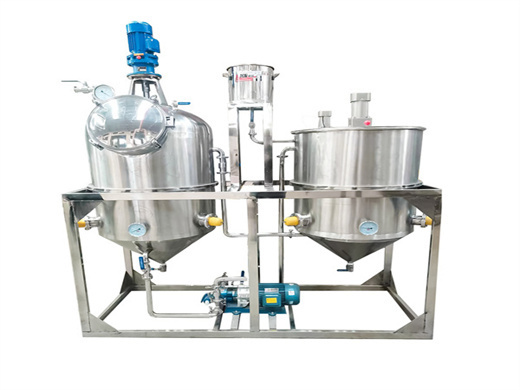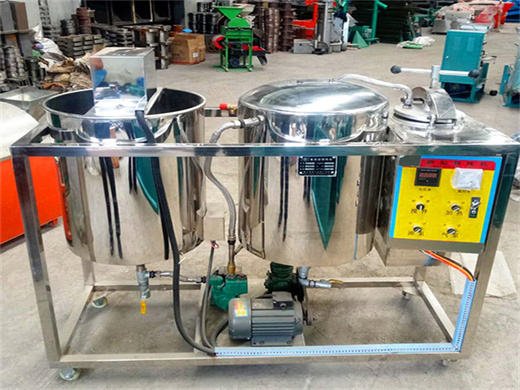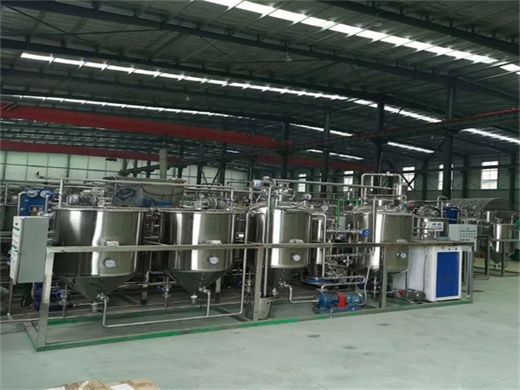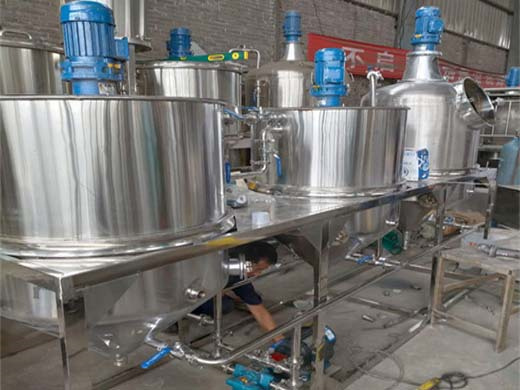Oil Refinery Plant|Customized Edible Oil Refining Process
For example, according to the relevant quality standard, edible oil refinery for soybean, peanut, and sesame, only needs pretreatment and degumming, and cottonseed oil refinery needs pretreatment, degumming and deacidifying, and rice bran oil refining needs pretreatment, degumming, deacidifying,decoloring, deodorization and dewaxing process to each the standard of cooking oil.
High end technology and premium raw materials are used in fabricating high performance and durable Oil Refinery Process Machines for customers. With realizing that palm oil processing is a delicate task, we design excellent range of oil refinery process plant and the relative machines for the customers all over the world.
Deodorization Process, Oil Deodorization
Deodorization Process is the forth step in vegetable oil refining which commences after finishing the bleaching. Deodorization holds a big impact on the refined oil quality and is often considered as the heart of the entire edible oil refining method.
Edible oil refining process is vital for oil mill plant to produce pure and quality edible oil. Main processing steps are bleaching, degumming, deodorizing.
Oil Refiner Plant Project Producing the Puriest Edible Oil
Oil Refinery Plant Introduction. Oil Refining is a progress of removing the impurities such as phospholipids, FFA, pigment, off-flavor in cruel oil before edible application. Oil refining machine is used for producing the first or second-grade edible oil. We are able to supply the professional oil refining plant and related oil refining equipment.
Palm oil physical refining process. Oil physical refining process, also called as oil steam refining. During the degumming section in the palm oil milling plant, the gum will be removed from palm oil by utilizing phosphoric acid or citric acid. Next to bleaching section, the coloring matter and other metal ions will be absorbed or removed.
The Best Edible Oil Refinery Process Plant We Offer
High end technology and premium raw materials are used in fabricating high performance and durable Oil Refinery Process Machines for customers. With realizing that palm oil processing is a delicate task, we design excellent range of oil refinery process plant and the relative machines for the customers all over the world.
In edible oil refining process, the most commonly used method is hydrated degumming, which can extract the hydratable phospholipids and some non-hydrate phospholipids, while the remaining non-hydrate phospholipids need to be removed by acid refining degumming. 1. Working principle of hydrated degumming
Small Edible Oil Refinery Plant
Wide Application: can process various kinds of crude oil, including all kinds of vegetable oil, seeds oil and palm oil. It is the best choice for small refinery of cooking oil and salad oil. Equipment Included in The Small Edible Oil Refinery Plant. Edible Oil Refining Process
Oil Refinery Plant Introduction Oil Refining is a progress of removing the impurities such as phospholipids, FFA, pigment, off-flavor in cruel oil before edible application. Oil refining machine is used for producing the first or second-grade edible oil.
Oil Production Process and Machinery for Edible Oil Mill Plant
The small oil mill plant is able to process a great number of vegetable seeds and nuts. It is able to process a great many of vegetable oil seeds, such as soybeans, peanuts, cotton seeds, sunflower seeds, sesame seeds, palm kernel, coconut etc.
Dewaxing Process, Oil Dewaxing Process, Sunflower Oil
Dewaxing may be the fifth process considered for the edible oil refining. It is not a compulsory process and it is not required for every type of oil. Dewaxing is performed only for high wax containing oils such as Sunflower Oil, Rice Bran Oil, Corn Oil etc.
Degumming Process in Oil Refining Plant, Edible Oil
Degumming process in oil refining plant is to remove gum impurities in crude oil by physical or chemical methods, and it is an oil purification process. After screw pressing and solvent extracting from oilseeds, crude oil mainly contains triglycerides and few non-triglyceride.
Oil Production Process and Machinery for Edible Oil Mill Plant
The small oil mill plant is able to process a great number of vegetable seeds and nuts. It is able to process a great many of vegetable oil seeds, such as soybeans, peanuts, cotton seeds, sunflower seeds, sesame seeds, palm kernel, coconut etc.
Vegetable Oil Refining – Edible Oil Refining Plant
The main aim of edible oil refining is to make the oil suitable for human consumption and DVC provide solutions of sunflower, vegetable oil refining plant. The main aim of edible oil refining is to make the oil suitable for human consumption and DVC provide solutions of sunflower, vegetable oil refining plant …
Edible / Vegetable Oil Refinery Plant
Oil refinery plant refers to a series of refining processes that can remove phospholipids, FFA, pigment, off-flavor and other impurities in the oil.Edible oil refinery or vegetable oil refinery is essential to ensure removal of gums, waxes, phosphatides and free fatty acid (F. F.A.) from the oil. To impart uniform colur by removal of coloring pigments and to get rid of unpleasant smell from …
Bleaching Process, Oil Bleaching Process
Bleaching Process is the third step in vegetable oil refining which commences after complete of effective neutralization process. Bleacher Pressure Vessel is used to carry out the Bleaching Process. A Bleacher is careful designed equipment based on design parameters to ensure perfect bleach-ability of the crude oil.
Small Scale Edible Oil Refinery Plant – Oil Mill Plant
The complete edible oil refining process mainly includes filtration, degumming, deacidification, vacuum dehydration, decolorization, deodorization, dewaxing and polishing filtration.
Vegetable Oil Refining – Edible Oil Refining Plant
The main aim of edible oil refining is to make the oil suitable for human consumption and DVC provide solutions of sunflower, vegetable oil refining plant. The main aim of edible oil refining is to make the oil suitable for human consumption and DVC provide solutions of sunflower, vegetable oil refining plant …
Vegetable Oil Refineries – Vegetable Oil Refinery Plant
These Physical Refining Plant are designed to process different vegetable oils such as sunflower, Rice Bran, Mustard, Soya, Cotton Seed, Palm, Palm Kernel or corn oil. Basic process involves in Vegetable Oil Refineries some of the following or all the process steps depending on the oil being processed and whether the process selected is chemical refining or Physical refining.
Impurities in Crude Oil and Refining Methods
The impurity type and quantity depend on the variety and quality of oil plant, oil processing technology and methods. When crude oil is produced through oil milling production, it is essential to get rid of these unwanted impurities, and make the oil achieves the standards of edible or industrial use. This process is called “oil refining”.
Offer Edible Oil Refinery Lines for Various Crude Oils
Typically, the edible oil refining plant can be divided into three main types: batch oil refining, semi-continuous refining and continuous refining. Choosing which type for your edible oil refining line should assess the capacity, the purpose of final refined oils and detailed refining process.
Cooking Oil Refinery Plant, Batch Oil Refinery Plant
GOYUM provides a perfect process using Centrifuges from the best manufacturers. Bleaching Plant The Oil received from previous stages contains traces of soap, iron and few ppm of Phospholipids and Carotenes.
Chapter 5 : Processing and refining edible oils
After autoclaving, tissues of fish are pressed and the oil/water suspension is passed through centrifuges to separate the oil. Oil Refining. Refining produces an edible oil with characteristics that consumers desire such as bland flavour and odour, clear appearance, light colour, stability to oxidation and suitability for frying.
